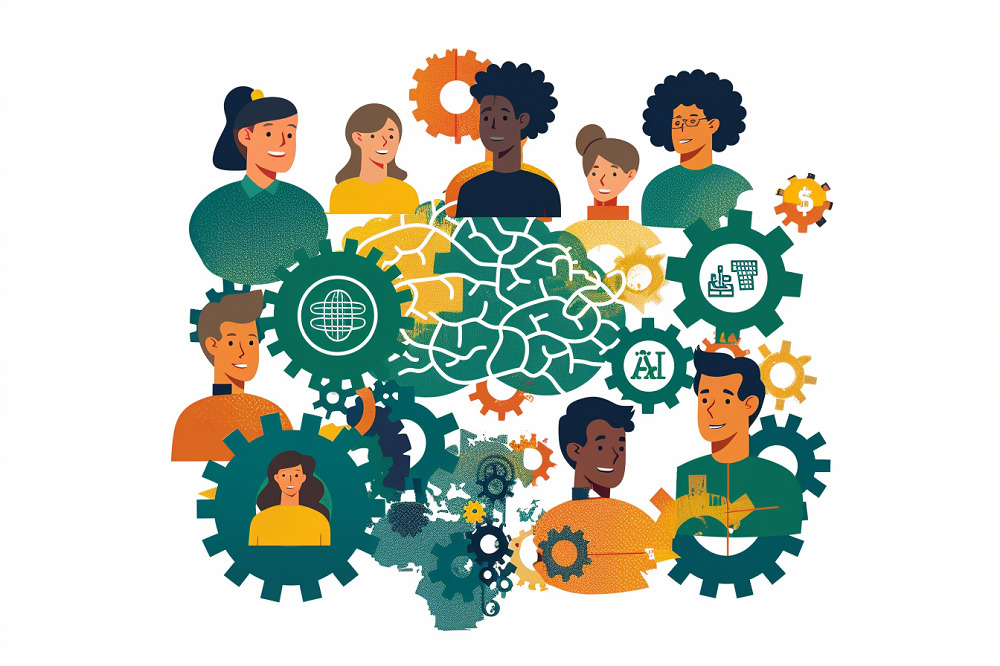Microsoft plans to inject funds to boost the development of artificial intelligence in Germany for the next two years. The move is part of the big tech firm’s strategy to explore the EU market with new and innovative products.
Funding Germany’s AI Development
Brad Smith, Microsoft’s president and vice chairman, announced the firm’s financial commitment during an event in Berlin as part of Microsoft’s strategic contribution to developing artificial intelligence (AI) and cloud research in Germany. It is worth noting that this is the largest investment Microsoft has made in the country in the last four decades.
Microsoft will also create cutting-edge data centers in Germany and conduct comprehensive training programs to develop AI skills among the local workforce. Concurrently, the French Finance Ministry announced Google’s plans to open a dedicated AI hub in France.
Located in Paris, the new center is expected to house roughly 300 researchers and engineers, strengthening the country’s goal of AI excellence. These strategic investments highlight Europe’s critical role in the global tech landscape, with corporations like Microsoft and Google actively supporting the region’s technical progress and competence.
Tech Companies’ AI Initiatives For Europe
Microsoft’s recent decision to invest considerably in Germany’s AI and cloud development landscape follows Google’s announcement of its “AI Opportunity Initiative for Europe” earlier this week. The move underscores the growing trend of big tech firms preferring European AI initiatives.
Google donated 25 million euros ($26.9 million) to train Europeans in artificial intelligence. In collaboration with EU governments, public society, and academia, Google intends to also deliver AI training to local entrepreneurs, particularly on preventing workers from falling behind in the quickly changing digital world.
This is consistent with a broader European trend, including Italy’s recent efforts to invest in digital skills to mitigate employment losses caused by automation and AI. These critical investments in European AI infrastructure and skill development align with the EU AI Act legislation.
Regulators approved the preliminary agreement for the law this week, with a legislative vote anticipated for April 2024. If approved, the EU AI Act will create a pioneering set of rules to govern AI development and deployment.
These moves will position Europe at the forefront of global AI governance, trailing China, which implemented its legislation last August.
Teaming Up To Prevent State-Backed Cyber Attacks
Meanwhile, OpenAI, the parent company behind the AI chatbot ChatGPT, has partnered with Microsoft to stop five unique cyberattacks by criminal actors. Microsoft closely monitored hacking groups linked to Russian military intelligence, Iran’s Revolutionary Guard, and the Chinese and North Korean governments.
These groups were discovered to be investigating the use of AI large language models (LLMs) for malicious hacking activities. LLMs use large text databases to generate replies that resemble human language.
OpenAI detected the five cyberattacks and attributed them to two Chinese groups (Charcoal Typhoon and Salmon Typhoon), North Korea’s Emerald Sleet, Iran’s Crimson Sandstorm, and Russia’s Forest Blizzard.
Fighting Hacking Entities
According to OpenAI, the groups attempted to use ChatGPT-4 to conduct various activities. Such activities included researching companies and cybersecurity devices, code debugging, creating scripts, running phishing campaigns, and analyzing radar technology and satellite communication.
These accounts were deactivated following their detection. Furthermore, OpenAI launched a $1 million cybersecurity grant program in June 2023 to strengthen AI-powered cybersecurity innovations. Also, over 200 firms, including OpenAI, Google, Microsoft, and Anthropic, recently joined the Biden Administration to launch the United States AI Safety Institute Consortium (AISIC) and the AI Safety Institute.
